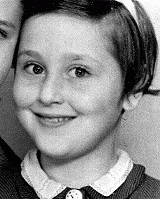You searched for: Auschwitz
<< Previous | Displaying results 701-725 of 878 for "Auschwitz" | Next >>
-
Letter Asking for Help to Hide Daughter
Timeline EventFebruary 1, 1943. On this date, Selek and Eda Kuenstler wrote to Sophia Zendler and begged her to hide their child.
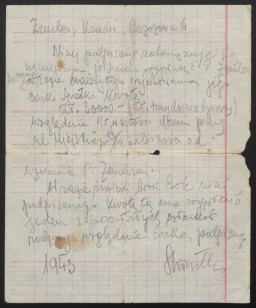
-
The 84th Infantry Division during World War II
ArticleThe 84th Infantry Division participated in major WWII campaigns and is recognized for liberating two Neuengamme subcamps, Hannover-Ahlem and Salzwedel, in 1945.
-
David (Dudi) Bergman describes a roll call "violation" incident in the Reichenbach subcamp of Gross-Rosen
Oral HistoryThe Germans occupied David's town, previously annexed by Hungary, in 1944. David was deported to Auschwitz and, with his father, transported to Plaszow. David was sent to the Gross-Rosen camp and to Reichenbach. He was then among three of 150 in a cattle car who survived transportation to Dachau. He was liberated after a death march from Innsbruck toward the front line of combat between US and German troops.
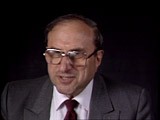
-
Madeline Deutsch describes adjusting to social and educational life after the war
Oral HistoryMadeline was born into a middle class family in an area of Czechoslovakia that was annexed by Hungary in 1938-1939. Her father worked out of their home and her mother was a homemaker. Madeline attended high school. In April 1944 her family was forced into a Hungarian ghetto. The family lived in the ghetto for two weeks before being transported to Auschwitz. Madeline and her mother were separated from her father and older brother. Neither her father nor brother survived the war. A week after arriving in…
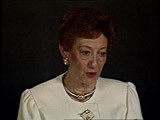
-
William (Bill) Lowenberg describes forced labor in the Kaufering subcamp of the Dachau concentration camp
Oral HistoryAs a boy, Bill attended school in Burgsteinfurt, a German town near the Dutch border. After the Nazis came to power in Germany in January 1933, Bill experienced increasing antisemitism and was once attacked on his way to Hebrew school by a boy who threw a knife at him. In 1936, he and his family left Germany for the Netherlands, where they had relatives and thought they would be safe. However, after Germany invaded the Netherlands in May 1940, antisemitic legislation--including the order to wear the Jewish…
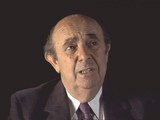
-
The Lodz Ghetto
Animated MapView an animated map of key events in the history of the Lodz ghetto in occupied Poland, from establishment by the Germans in 1940 until destruction in 1944.
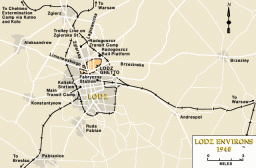
-
Deceiving the Public
ArticleThe Nazis frequently used propaganda to disguise their political aims and deceive the German and international public. Learn more.
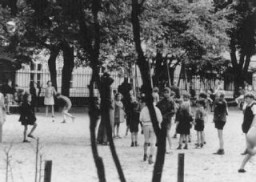
-
International Military Tribunal at Nuremberg
ArticleThe International Military Tribunal (IMT) opened in Nuremberg within months of Germany’s surrender. Learn about the judges, defendants, charges, and legacies.
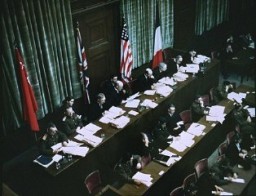
-
Abraham Bergman
ID CardAbraham was born to a Jewish family in Krasnik, a town in the Lublin district of Poland. The town had a large Jewish population. Abraham's father was a tailor. When Abraham was 2, his mother died and he was raised by his grandmother. At the age of 7, Abraham started public school. 1933-39: Abraham liked school but found it difficult. The Christian children often yelled at the Jews, "You killed our God." One year, on the day before Christmas break, some kids brought ropes tied to iron weights to school.…
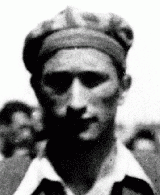
-
Eugeniusz Rozenblum
ID CardEugeniusz's parents married in 1922 in the Soviet Union, where his father owned a textile mill. Fearing arrest by the Soviets for being "bourgeois," Eugeniusz's parents fled to Poland, where Eugeniusz was born. 1933-39: Eugeniusz was a secondary school student and was preparing to enter university, either in Poland or at the Hebrew University in Palestine. The German occupation of Lodz in September 1939 interrupted his schooling. One month after the occupation, a German soldier came to his family's door…
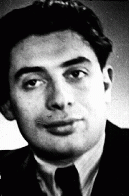
-
Yitzhak (Irving) Balsam
ID CardYitzhak was the second of four children born to religious Jewish parents. The family lived on the Polish-German border in Praszka, a small town where Yitzhak's father worked as a tailor. His work was not steady, and the family struggled to make ends meet. Yitzhak attended Polish public school in the mornings and Hebrew school in the afternoons. 1933-39: At 4 a.m. on September 1, 1939, the Balsams were awakened by an explosion. The Polish army had blown up the bridge over the Prosna River to impede the…
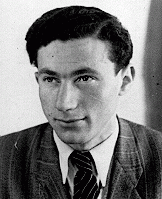
-
Ruth Elisabeth Dahl
ID CardRuth was born into an orthodox Jewish family in Geilenkirchen, a rural German town near the Dutch border. Her father, Isidor, was a respected cattle dealer in the area and her mother, Sophia, took care of the home. Ruth had two older siblings, Edith and Carl. 1933–39: When the Nazis came to power in Germany, life changed in Geilenkirchen. The townspeople supported the new regime and nobody helped their Jewish neighbors. Excluded from public institutions, Ruth attended a private Catholic school. In 1938,…
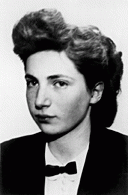
-
Peter Philipps
ID CardPete grew up in Essen, a major industrial city on Germany's Ruhr River. His father worked as a cattle hide dealer for an international trading company in nearby Muehlheim. His mother was a designer for a fashionable women's dress shop. Pete, his younger twin brothers, and parents lived together in an apartment. 1933–39: Pete had barely passed his first birthday when the Nazis came to power. His father realized the danger that now faced Jews in Germany, and the family left for Prague, Czechoslovakia, in…
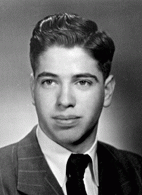
-
György (George) Pick
ID CardGyörgy was the only child of middle class Jewish parents living in the Hungarian capital of Budapest. His father, Istvan, was an engineer responsible for producing hydraulic grape presses for wineries. His mother, Margit, worked as a legal secretary. 1933–39: In 1938 and 1939, Hungary’s authoritarian government passed the first in a series of major anti-Jewish laws. The legislation severely restricted the participation of Jews in the economy and defined them in racial terms, much like the Nuremberg…
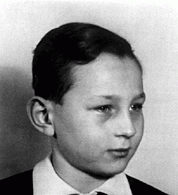
-
Moniek Rozen
ID CardOne of 12 children, Moniek grew up in Dabrowa Gornicza, an industrial town in western Poland. His father, Jacob, owned a general store, which he was forced to close in 1938 as the result of a boycott by local antisemites. Moniek attended both public and Jewish schools, and his father hoped that one day he would become a rabbi. 1933–39: On September 1, 1939, Moniek was awakened by the sounds of airplanes flying overhead as German forces invaded Poland. As the war drew closer, Moniek fled eastward, but…
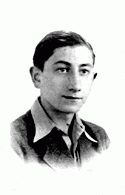
-
Martin Weiss
ID CardMartin was one of nine children born to orthodox Jewish parents in Veľká Poľana, a rural village in the Carpathian Mountains. His father owned a farm and a meat business, and his mother attended to the children and the home. Everyone in the family helped take care of the horses and cows. 1933–39: Martin attended the village's Czechoslovak schools, which were quite progressive. Like many of the other children, he looked forward to leaving the provincial life in Veľká Poľana. In 1938–1939, his…
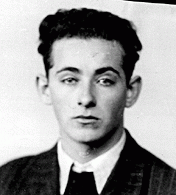
-
Inge Scheer
ID CardInge grew up in Vienna's Leopoldstadt, a large Jewish district located between the banks of the Danube Canal and the Danube River. The Scheers loved music, and Inge grew up listening to family members singing selections from popular operettas. 1933-39: Inge was 8 years old when the Germans annexed Austria in 1938 and her parents decided they'd better flee. They were smuggled illegally, via the Netherlands, to Brussels where the Jewish community helped to hide illegal refugees like Inge and her family.…
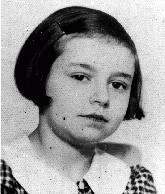
-
Judith Kalman
ID CardJudith was the only child born to a Jewish couple who lived in Hatvan, a small town 36 miles northeast of Budapest. Judith's father worked in his brother's business, marketing grains and other agricultural products purchased from local farms. When she was 3, Judith gave her first public recitation of poetry, an interest that she pursued throughout her childhood. 1933-39: Judith's family wasn't religious--they were Hungarians who happened to be Jewish, and their family was well-liked in Hatvan. But in the…
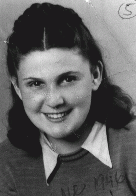
-
David Bergman
ID CardDavid was born to religious Jewish parents in a small town in Ruthenia, Czechoslovakia's easternmost province, which had been ruled by Hungary until 1918. Located in the Carpathian Mountains, the town was so isolated that news from the rest of the country would arrive by a drummer who would read the news in the town's central square. David's father worked as a tailor and his mother was a seamstress. 1933-39: While David's parents worked, he would be at home having a good time. They had a beautiful home…
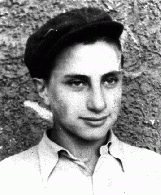
-
Freya Karoline Lang
ID CardAn only child, Freya was born to Jewish parents who lived in a small German town in the Rhine River valley. The Langs owned a successful dry goods business. At this time ready-made clothes were still rare in the countryside. Townspeople and local farmers would purchase fabric at the Lang's store and then take it to their tailor or seamstress to be sewn into a garment. 1933-39: When Freya was growing up, the Nazi party was in power. Many Jews left Germany--Grandmother Lang and one of Freya's uncles sailed…
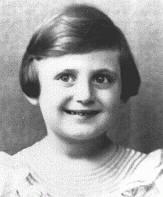
-
Dora Eiger
ID CardDora grew up in the industrial city of Radom, known for its armaments industry. Though fervently Jewish, her Yiddish-speaking parents differed from each other in that her mother was deeply religious while her father was not religious and was an ardent member of the Zionist Labor Party. Also known by her Jewish name D'vora, Dora attended Jewish schools and joined a Zionist youth organization. 1933-39: When Dora visited her uncle near the German border in 1936, she first noticed anti-Jewish placards and…
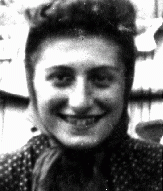
-
Hersh Gordon
ID CardHersh was born to a Jewish family in Kovno, the capital of independent Lithuania. Hersh's father was a mechanic in a textile factory, and his mother had worked as a hat designer until he was born. The Gordons lived on the first floor of Hersh's grandfather's apartment building. Eight-year-old Hersh was in the third grade at public elementary school. 1933-39: In the summers Hersh and his mother would go to his Aunt Ettel and Uncle Abraham in a small town not far away. They'd take a boat down the river to…
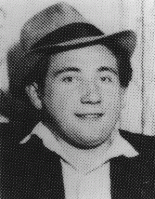
-
Szlamach Radoszynski
ID CardSzlamach was one of six children born to Yiddish-speaking, religious Jewish parents. Szlamach's father was a peddler, and the Radoszynski family lived in a modest apartment in Warsaw's Praga section on the east bank of the Vistula River. After completing his schooling at the age of 16, Szlamach apprenticed to become a furrier. 1933-39: During the 1930s Szlamach owned a fur business. Despite the Depression, he was hoping the economy would turn around so that he could make enough money to move into his own…
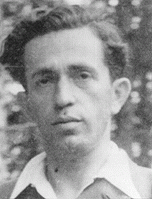
-
Frank Meissner
ID CardFrank's town of Trest in western Moravia had a small Jewish community of 64 members in 1930, and Frank was sometimes beaten up in grade school because of antisemitism. When the Meissners' wooden shoe factory closed, Frank's father turned to the furniture industry. But due to post-World War I economic uncertainty, he lost his livelihood. To support the family, Mrs. Meissner worked as a secretary. 1933-39: Trest was small and didn't have a secondary school, so Frank studied during the week in the…
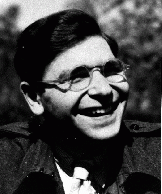
-
Doriane Kurz
ID CardDoriane Kurz’s parents, Klara and Emil Meilech Kurz, settled in Vienna, where her father ran a thriving branch of the family's multinational optical frames business. 1933-39: Doriane was born in Vienna just two years before the Germans annexed Austria in March 1938. Her family fled to the Netherlands soon after the annexation. The Kurz family moved to the town of Maastricht where a branch of the Kurz Brothers' optical frames business was located. Doriane attended nursery school in Maastricht, but the…
